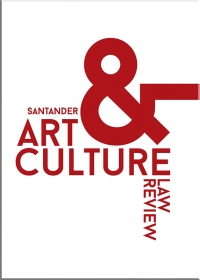The Intangible Cultural Heritage System: Many Challenges, Few Proposals
The Intangible Cultural Heritage System: Many Challenges, Few Proposals
Author(s): Ahmed SkountiSubject(s): Museology & Heritage Studies, Customs / Folklore, International Law, Public Law, Cultural Anthropology / Ethnology
Published by: Wydawnictwo Uniwersytetu Jagiellońskiego
Keywords: Intangible Cultural Heritage System; the 2003 Convention; UNESCO; universality; safeguarding; communities; governance;
Summary/Abstract: The 2003 Convention is one of the most powerful normative instruments of UNESCO in the fields of culture and cultural heritage. Ten years after its entry into force, it’s worth scrutinizing its implementation globally. One hundred and seventy-four States have become parties to the Convention as of 12 May 2017. Four hundred and twenty-nine elements and 17 programs, activities, and projects have been inscribed altogether on the Urgent Safeguarding List and Representative List or selected on the Register of Good Safeguarding Practices. The 2003 Convention has given birth to what I propose to call an “Intangible Cultural Heritage System” (“ICH System”): a constellation of actors either on the local, national, or international levels who contribute, in different ways, to its implementation. This paper examines the main challenges posed to this system in the last decade. It focuses on key-issues to which the 2003 Convention is confronted today: the universality of the concept of ICH, the governance of the 2003 Convention and its implementation on the international, national, and local levels, the listing process, including its positive and negative effects, the role of communities and other stakeholders in the implementation process, and the impact of safeguarding on ICH elements. Through a critical approach, both from inside and outside the functioning of the ICH System, the main objective of the paper is to make a contribution to the efforts seeking at the enhancement of the safeguarding worldwide. Its aim is a contribution both to the academic research in the field of heritage studies and to the improvement of the implementation worldwide.
Journal: Santander Art and Culture Law Review
- Issue Year: 3/2017
- Issue No: 2
- Page Range: 61-76
- Page Count: 16
- Language: English

